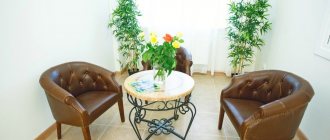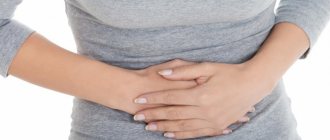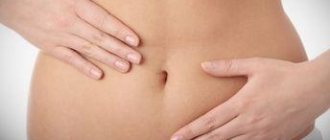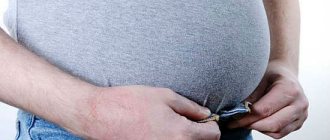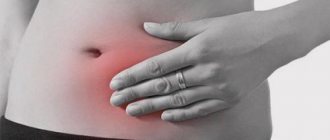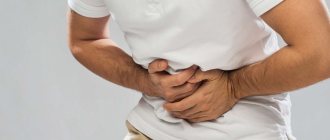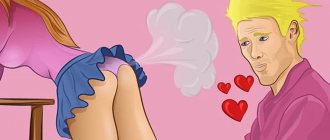A burning sensation in the stomach is not a separate disease, but a symptom of various pathological processes occurring in the gastrointestinal tract. When it appears, consultation with a specialist, gastroenterologist or surgeon is vital. Self-medication and self-diagnosis in a condition where the stomach bakes leads to an exacerbation of the underlying disease and a risk to the patient’s life. Information on the treatment of this pathology cannot be taken as a guide to action; it is provided for reference purposes.
Causes and manifestations
Increased acidity is the cause of a burning sensation in the stomach
Most often, this symptom affects the gastric mucosa, which is its protective layer. It is damage to the mucous membrane that leads to the appearance of unpleasant sensations in the epigastric region. In addition to the feeling of burning in the stomach, the following symptoms may occur:
- Heaviness and feeling of discomfort that occurs after eating.
- Nausea and vomiting.
- Intense belching with a sour taste, accompanied by a loud sound.
- Losing weight.
- Sour taste in the mouth, independent of diet and food intake.
There are a large number of reasons for the appearance of such symptoms. Even if the patient only feels a burning sensation in the stomach, its causes may be as follows:
- Poor diet with a predominance of fatty, spicy, smoked, very salty foods, as well as alcohol abuse. The stomach bakes irregularly, but only when the diet is disrupted, heartburn remedies effectively help.
- Gastritis, regardless of the type of acidity, gastric ulcer. Gastric juice irritates defects in the mucous membrane, which causes unpleasant symptoms.
- Action of pathogenic bacteria (Escherichia coli, Helicobacter pilori).
- A side effect from prolonged and uncontrolled use of antibiotics, painkillers, and hormonal drugs.
- Rejection of discharged gallbladder and pancreas into the stomach due to duodenogastric reflux.
- Pregnancy, when the uterus enlarges so much in the last trimester that it puts pressure on the stomach and displaces it.
- Hormonal changes, too high progesterone levels.
- Esophagitis (inflammation of the esophagus), when the gastric mucosa is also significantly inflamed.
- Oncological lesions of the stomach and intestines, tumor processes.
- Manifestations of angina pectoris, heart failure. In this case, the burning goes away after taking nitroglycerin.
- Nervous shocks, life in constant stress.
All these reasons require qualified laboratory and hardware examinations and the prescription of adequate treatment.
Diagnostics
A physical examination provides valuable information. Upon visual examination, the coloproctologist reveals maceration and rashes in the perianal area. During a digital rectal examination, the doctor can palpate enlarged hemorrhoids and large tumors. To clarify the etiological factors of burning in the anus, the following instrumental and laboratory methods are used:
- Sigmoidoscopy.
During an endoscopic examination of the anal canal, inflammatory, ulcerative and tumor processes of the anus are diagnosed. The method is informative for assessing the degree of enlargement of hemorrhoids and detecting cicatricial changes in the anus. For patient comfort, sigmoidoscopy can be performed under anesthesia. - Ultrasound.
Sonography is a quick and painless method that helps detect neoplasms and signs of the spread of inflammatory processes to surrounding tissues. Men must undergo transrectal ultrasound examination (TRUS) of the prostate to ensure the absence of urological diseases. - Anal manometry.
A technique for assessing sphincter tone is necessary to confirm fecal incontinence or, conversely, pathological spasm of the anal muscles. To clarify the diagnosis, specialists in the field of proctology use electromyography data of the anal sphincter. - Coprogram.
The presence of mucus and a large number of leukocytes in the stool indicates an acute inflammatory process in the anus. With ulcerative defects and neoplasms, blood impurities are found in the stool. Additionally, feces are examined for eggs of helminthiasis pathogens. - Additional research.
Sometimes a burning sensation in the anus is caused by colonic pathology, so plain radiography of the abdominal cavity, irrigoscopy, and colonoscopy are recommended. If suspicious formations are identified during endoscopy, a biopsy specimen is taken for histological examination.
Treatment of hemorrhoids using the HAL-RAR method
Examination for burning in the stomach
For diagnosis, the doctor will prescribe more than one test
Most likely, a gastroenterologist will prescribe the following diagnostic procedures:
- Gastroscopy.
- X-ray of the stomach.
- Study of gastric juice for acidity and enzyme composition.
- Blood test for the presence or absence of antibodies to the bacterium Helicobacter pylori.
- Study of gastric juice according to microbiological parameters.
It may be necessary to culture a smear for E. coli and scrape for worm eggs to exclude them when making a diagnosis.
Consequences of ignoring a dangerous symptom
If the condition when it bakes in the stomach is not diagnosed and treated, the consequences can be the most unpredictable. Untreated gastritis and ulcers can lead to significant damage to the mucous membrane, including perforation of the stomach walls, gastric bleeding, and peritonitis.
In advanced cases, death cannot be ruled out. Constant irritation of the walls of the stomach by excessive release of hydrochloric acid and the reflux of bile into it can eventually lead to the development of an oncological process and the appearance of inoperable tumors.
Diet, diet, lifestyle
Eating spicy foods often causes heartburn.
An orderly lifestyle is one of the most important conditions for complete treatment. Eliminating stress factors, maintaining a sleep and rest schedule, eating regularly at least 5 times a day - such seemingly simple recommendations can significantly improve the condition of a person suffering from this symptom. A balanced diet is very important.
Its purpose is to normalize the metabolism of food, exclude from the diet foods that cause excessive gas formation, as well as fermentation of undigested food residues in the stomach and intestines. Recommended Products:
- Vegetable and chicken broth soups, slimy soups.
- Rabbit, turkey, chicken, steamed or boiled.
- Porridges and side dishes from cereals.
- Fresh and steamed vegetables.
- Fresh fruits and fruit salads.
- Fermented milk products with a low fat content.
Food should be slightly above room temperature, neither cold nor hot. It is advisable to keep portions small, but eat frequently and not monotonously.
Foods that need to be excluded from the diet for the entire duration of treatment and recovery:
- Alcohol of any strength, beer, carbonated drinks.
- Pickled and canned foods.
- Fatty broths.
- Fatty meats and fish.
- Baking with yeast dough.
- Chips, chewing gum.
- Coffee, chocolate.
Individual intolerance to certain drugs that cause a burning sensation in the stomach is possible: citrus fruits, tomatoes, garlic and onions. Under no circumstances should you eat dry food or on the go, take long breaks between meals, or eat foods that are too hot or too cold. It is also advisable to follow these rules:
- You should not eat or drink later than two hours before bedtime.
- You cannot wear tight clothes, belts, trouser belts, tight trousers, or jeans.
- There is no need to lean back and lie down immediately after eating.
- It is advisable to raise the head of the bed by 10-15 cm.
Following simple recommendations and correcting the diet, giving up bad habits will significantly alleviate the condition of a person suffering from a burning sensation in the stomach.
Types of pain and symptoms
Abdominal pain is possible in the following manifestations:
- spicy. Severe pain that occurs suddenly;
- chronic. The pain intensifies gradually, in many cases over a month or more;
- chronically recurrent. The pain occurs periodically - it appears suddenly and just as suddenly goes away, appears again after a certain period of time;
- tonic. The main characteristic of such pain is strong muscle tone and the appearance of compactions. Pain may also be accompanied by spontaneous contraction of muscle fibers;
- clonic pain – supplemented by rhythmic muscle spasms;
- burning (“cuts”, “aches”) pain – reminiscent of a feeling of hunger.
The pain can be localized in the umbilical region, the upper part of the peritoneum (hypochondrium), below the navel on the right or left, and the entire abdomen can also hurt.
A patient complaining of a stomach ache will exhibit different symptoms. Pain may be characterized by:
- colic – paroxysmal stabbing sensations;
- spasms - spontaneous contractions of muscle fibers with simultaneous blanching of the skin. In some cases (depending on the type and specificity of the disease), a painful abdomen may be accompanied by fever and bleeding;
- strong burning sensation;
- feeling of fullness. For example, a feeling of bulging in the lower back may indicate problems with the colon;
- cyclicality (either increasing or decreasing pain intensity);
- increased gas formation;
- itching in the anal area;
- discomfort in the abdomen during a period of rest, disappearing during movement. This symptom may indicate a circulatory disorder in the abdominal cavity.
Medicines
Baking in the stomach - a reason to visit a gastroenterologist
Since one of the main causes of burning in the epigastric region is the excessive secretion of hydrochloric acid, the main part of the drugs is intended to neutralize it. The prescription of drugs when the stomach bakes should be entrusted to a gastroenterologist, and not self-medicate. Most likely, he will prescribe medications from the following pharmaceutical groups:
- Antispasmodics that relieve pain from spasms of the muscular layer of the stomach (No-spa, Drotaverine hydrochloride, Papaverine).
- Antacid drugs to reduce the concentration of gastric juice (Maalox, Gaviscon, Gastal, Gastrozol, Panum, Relzer, Hydrotalcite, Almagel, Ranitidine, Altacid, Rennie).
- Alginates to create a protective shell on mucous membranes affected by hydrochloric acid (De-nol, Tribimol, Omez, Omeprazole).
- Enzymes that promote food digestion (Creon, Mezim, Pancreatin, Festal).
- Probiotics and prebiotics for violation of the ratio of beneficial and pathological microflora (Linex, Hilak Forte).
Additionally, it is recommended to drink alkaline mineral water according to the regimen determined by the doctor and take vitamin complexes.
Treatment
Help before diagnosis
To reduce burning in the anal area, you need to carefully maintain hygiene. The perineum is washed with warm water after each bowel movement, and when mucus or pus is discharged from the anus, water procedures are performed more often. To prevent maceration of the skin, it is necessary to wear soft cotton underwear, and in case of heavy discharge, use special pads.
Soap and other chemicals used for hygienic purposes should be thoroughly rinsed off, as residual products can cause severe burning. For comfortable cleansing of the perianal area, it is recommended to have damp toilet paper that does not injure the skin and does not aggravate discomfort. You can take medications only after a visit to a proctologist, who will find out the cause of the discomfort and select therapy.
Conservative therapy
Treatment of any proctological disease begins with a special diet. The diet limits fatty, salty and spicy foods, and reduces the content of coarse fiber. The gentle menu provides a soft consistency of stool to prevent constipation and make bowel movements as painless as possible. Taking into account the etiology of burning in the anus, the following are prescribed:
- Rectal suppositories
. Suppositories with anti-inflammatory and emollient components quickly eliminate itching and burning in the rectum and improve the patient’s well-being. Medicines facilitate the act of defecation, envelop the rectal mucosa and protect it from damage. - Antibiotics
. In acute proctitis, drugs quickly eliminate the pathogenic pathogen, prevent the spread of the inflammatory process and the development of paraproctitis. If the pathology is caused by worms or protozoa, other etiotropic drugs are recommended: anthelmintic, antiprotozoal. - Hormones
. Taking corticosteroids in short courses can quickly relieve inflammation and swelling in severe proctitis and exacerbation of hemorrhoids. For allergic etiology of anal burning, treatment is supplemented with antihistamines. - Phlebotropic agents
. Drugs to strengthen the venous walls are used for hemorrhoids to prevent the nodes from enlarging and bleeding from them. In the acute period, local combination drugs are indicated that have venotonic and analgesic effects.
For targeted administration of medicinal substances into the anus, microenemas with local anesthetics, chamomile decoction, and oil solutions are used. After the acute process subsides, sitz baths with potassium permanganate and a perineal shower are prescribed. To eliminate burning and pain, physiotherapeutic effects are used: laser radiation, diadynamic therapy, ultrasound.
